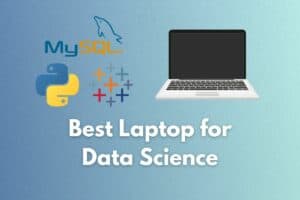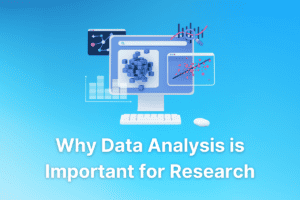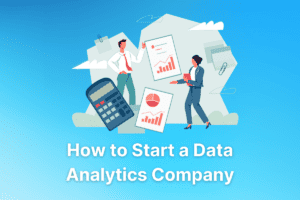Data Analytics: Definition, Applications, and its Importance
We’re reader-supported; we may earn a commission from links in this article.
Global companies today have already seen massive changes due to the data-driven approaches in their business!
This makes sense as data analytics helps organizations identify ongoing trends and opportunities in data that could lead to new products, services, and insights.
In this article, I will cover what data analytics is all about, what are the applications of data analytics in business, and what’s the importance of utilizing it.
If you’re curious to find out more about data analytics, read more to find out!
What is Data Analytics? (Definition)
Data analytics is the process of evaluating, organizing, and interpreting data in order to extract valuable insights and make informed decisions.
With the constant advancement of technology and the abundance of data being generated, the field of data analytics has become increasingly important in both the business and personal spheres.
Types of Data Analytics
There are various types of data analytics, including descriptive, diagnostic, predictive, and prescriptive.
Descriptive analytics summarizes and describes data, diagnostic analytics identifies the cause of a problem, predictive analytics uses historical data to predict future events, and prescriptive analytics recommends actions to take.
Applications of Data Analytics
Data analytics has a vast range of applications in various industries.
1. Business Intelligence
By utilizing data analytics, companies can keep a keen eye on key performance indicators (KPIs) such as sales and revenue to boost decision-making and lead to better business outcomes.
Data analytics usually involves the process of analyzing raw data, with the final product being a data visualization that highlights key insights.
In business, these KPIs can be easily tracked on a Tableau dashboard.
This helps a business keep up to date with the latest information on a campaign that a business has recently launched.
2. Fraud detection
Data analytics can be used to identify patterns and anomalies in financial transactions to detect and prevent fraudulent activity.
By utilizing data analytics, businesses can quickly spot any suspicious activities and prevent potential losses.
Data analytics has become an essential tool for fraud prevention.
By examining transactional and behavioral data, data analysts are able to recognize suspicious behavior, such as large-scale transactions that occur more frequently than normal or transactions which have highly peculiar elements.
Furthermore, predictive models can detect anomalies and alert personnel of potential fraudulent activity.
Therefore, data analytics is a powerful resource in the fight against fraud.
3. Healthcare
Hospitals and healthcare providers use data analytics to improve patient outcomes, reduce costs, and optimize the delivery of care.
Data analytics is widely used in the healthcare industry to improve patient outcomes and drive cost savings.
By examining large datasets, healthcare organizations can also uncover patterns in health data that may help to identify potential issues before they become serious.
For example, analyzing population-level data can provide insights into best practices for treatment approaches and lead to more efficient diagnoses and treatments.
Additionally, predictive models can be leveraged to identify the most suitable care pathways for individual patients based on their medical history, lifestyle, and other factors.
Data analytics can also help healthcare providers manage resources more effectively by allowing them to forecast demand and allocate resources accordingly.
All of these applications can drive down healthcare business costs, which can be passed on as cheaper access to quality healthcare to patients.
4. Marketing
Companies use data analytics to gain insights into customer behavior and preferences, which can inform targeted marketing campaigns and improve ROI.
Data analytics is increasingly being used for marketing purposes, as it allows data analysts to gain valuable insights into consumer behavior and preferences.
By examining customer data such as demographics, past purchases, website visits, search engine queries, and more, organizations can develop tailored marketing strategies that are designed to engage consumers in a more effective manner.
Furthermore, predictive models can be used to anticipate consumer trends and optimize advertising campaigns accordingly.
Additionally, data analytics tools allow organizations to measure the success of their marketing efforts by providing metrics such as campaign performance and conversion rates.
5. Supply Chain Management
Data analytics is becoming an increasingly important tool in supply chain management, as it allows organizations to gain valuable insights into every stage of their supply chain process.
By leveraging data-driven technologies such as artificial intelligence (AI), machine learning (ML), and predictive analytics, organizations can identify areas of improvement and optimize their supply chain operations for greater efficiency.
Data analytics can be used to monitor and analyze trends in consumer demand, allowing companies to proactively adjust their production schedules accordingly.
Additionally, ML algorithms can be used to anticipate delivery delays or shortfalls in inventory before they occur, allowing organizations to take preventative action quickly and minimize the risk of disruption.
Furthermore, data analytics can help organizations reduce costs by enabling them to identify unnecessary processes or expenses that add no value.
Why Data Analytics is Important
It’s crucial for organizations of all sizes to recognize the significance of data analytics in today’s world.
By extracting meaningful insights from data, businesses can make better decisions, increase efficiency, and gain a competitive edge.
Additionally, data analytics provides individuals with insight into their own behavior and habits, allowing them to make more informed decisions.
1. Improved Business Decisions
Data analytics provides businesses with actionable insights that help them make better decisions. This can lead to more efficient operations and improved profitability.
Data analytics helps organizations make informed decisions by providing them with valuable insights into their operations.
By leveraging data-driven technologies such as AI, ML, and predictive analytics, businesses can identify trends in consumer demand, uncover areas of improvement in their processes, and optimize their supply chain operations for greater efficiency.
Additionally, they can use data analytics to anticipate potential risks and take preventative measures before it is too late.
2. Enhanced Customer Experiences
By analyzing raw customer data, organizations can disocer new insights on how to engage customers more effectively and improve their overall user experience.
Data analytics helps organizations provide a better customer experience by leveraging data-driven technologies such as AI and ML.
By analyzing customer behavior, organizations can develop personalized strategies to understand their needs and deliver more relevant products or services.
Additionally, advanced data analytics tools can be used to predict customer trends and anticipate future demands, allowing businesses to be proactive in responding to customer needs.
Finally, businesses can use data analytics to identify where customers are dropping off in the sales funnel and take corrective measures to improve the overall journey.
3. Cost Savings
Data analytics helps organizations identify cost savings opportunities, such as ways to streamline processes, reduce waste, and optimize production schedules.
Data analytics can help businesses save costs by identifying inefficiencies in processes and operations.
By analyzing customer behavior, organizations can make informed decisions about marketing, sales, operations and customer service that lower overhead costs.
Data analytics can also be used to anticipate risks or potential issues before they become too severe or costly to mitigate.
Finally, advanced data analytics tools can provide insights into customer trends and demand forecasts which allow businesses to accurately predict when inventory should be stocked up or downsized in order to maximize resources.
4. Faster Problem-Solving
Data analytics can lead to faster problem solving by providing businesses with insights into customer trends and operations that allow them to accurately predict potential issues and take action accordingly.
Advanced data analytics tools also provide detailed information about customer behavior, enabling organizations to quickly identify patterns, diagnose problems and come up with creative solutions that maximize performance, efficiency and cost-effectiveness.
Data analysts and data scientists can write algorithms to identify these patterns on an automated basis. This means that problems are likely to be quickly caught and brought to attention.
As a result, response to the problem is faster.
Additionally, when raw data is analyzed comprehensively, data analytics can aid in root cause analysis.
This helps teams identify and address the source of an issue rather than merely treating its symptoms.
5. Informed Risk Management
Data analytics can lead to informed risk management by providing businesses with information and insights into customer behavior, market trends and operations that enable them to make well-informed decisions.
Machine learning algorithms can quickly identify risks posed by certain activities or operations, allowing organizations to take action before they become too costly or severe.
With artificial intelligence capable of predictions of future changes in business operations, risk management teams are better able to adjust policies and procedures accordingly.
Final Thoughts
To sum up, data analytics is a vital tool that can be used to extract insights from data and make better decisions.
With its wide range of applications and its growing importance in today’s world, understanding and utilizing data analytics is crucial for success in business and personal endeavors.
I hope you have learned something from this article. All the best!

Justin Chia
Justin is the author of Justjooz and is a data analyst and AI expert. He is also a Nanyang Technological University (NTU) alumni, majoring in Biological Sciences.
He regularly posts AI and analytics content on LinkedIn, and writes a weekly newsletter, The Juicer, on AI, analytics, tech, and personal development.
To unwind, Justin enjoys gaming and reading.




